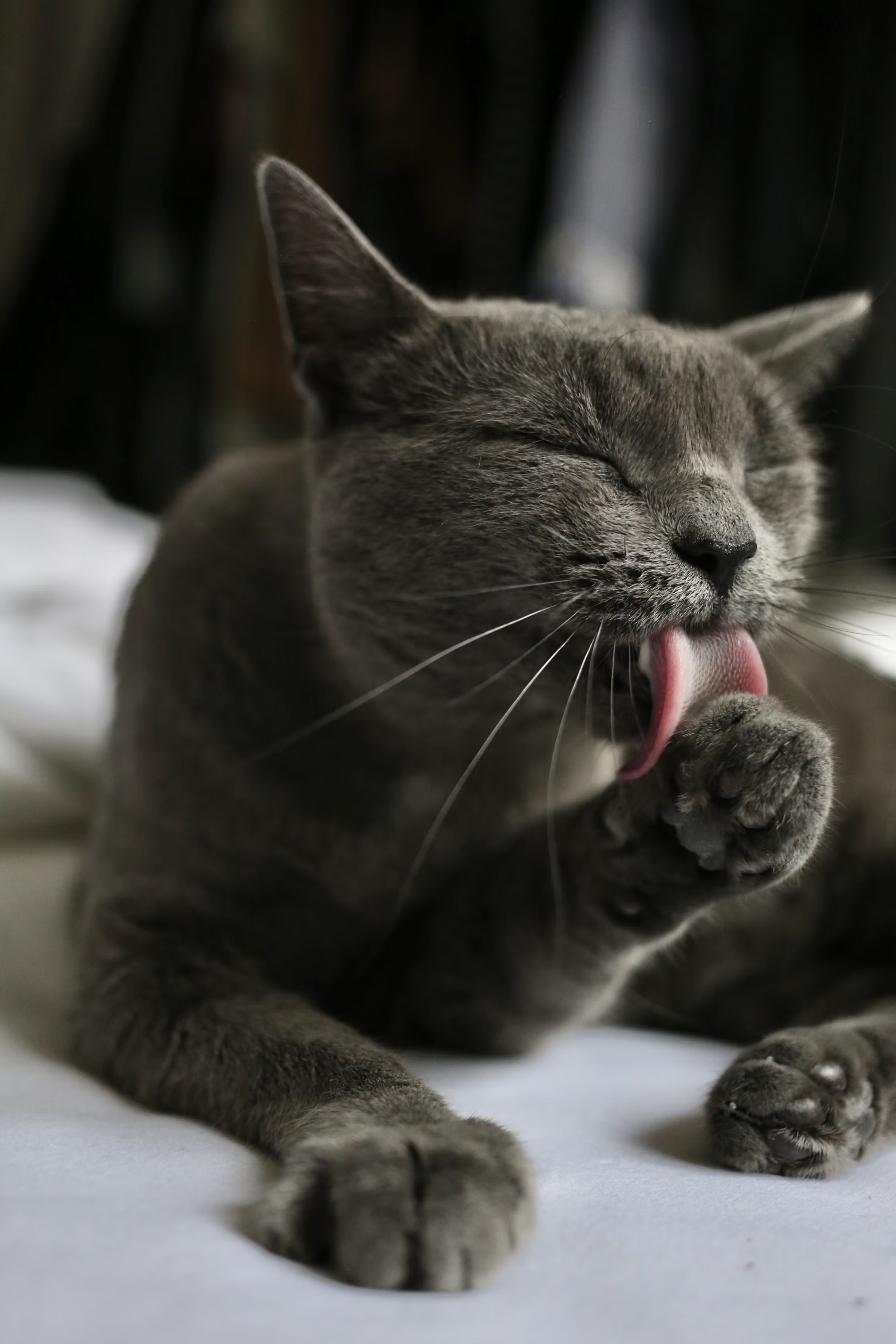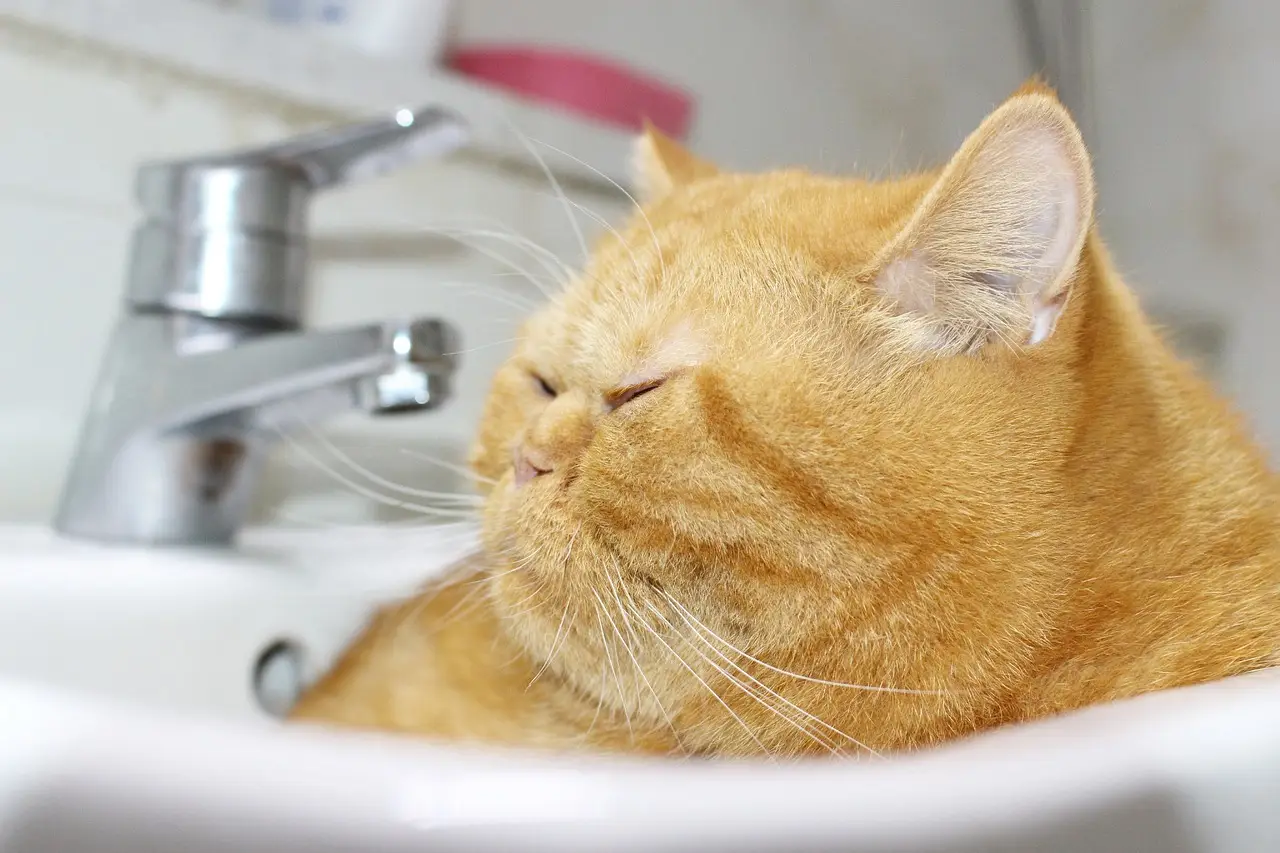
WHY DO CATS LICK YOU?
Understanding the Language of Cat Licks: Why Does My Cat Lick Me?
Have you ever felt the rough texture of your cat’s tongue as it affectionately licks your skin?
This behavior is both endearing and puzzling to many cat owners. From expressing love to signaling distress, your feline friend’s licks communicate a variety of messages.
In this article, we delve into the intriguing world of cat licks to decode the reasons behind this common behavior.
Why Do Cats Lick You?
Your Cat Is Expressing Affection:
Cats often lick their human companions as a sign of affection.
Similar to how they groom their fellow felines, licking can be a way for your cat to demonstrate love and bond with you.
Your Cat Is Seeking Attention:
If your cat craves attention, licking may be its way of capturing your focus. By licking you, your cat is signaling its desire for interaction and engagement.
Your Cat Is Identifying You as Part of the Group:
Licking serves as a means for cats to establish social bonds within their group. When your cat licks you, it’s acknowledging you as a member of its family or social circle (Source).
Your Cat Is Displaying Kitten-Related Behavior:
Nursing behavior from kittenhood often carries over into adulthood.
Your cat’s licking may stem from instinctual behaviors learned during its formative years.
Your Cat Likes Your Taste:
Believe it or not, your cat may enjoy the taste of your skin or any residue left on it, such as sweat or lotion. This could be a motivating factor behind its licking habit.
Your Cat Is Anxious:
Licking can also be a coping mechanism for anxious cats. If your cat is feeling stressed or anxious, it may resort to licking as a way to self-soothe.
Your Cat Has a Medical Issue:
In some cases, excessive licking may indicate an underlying medical problem, such as allergies, skin irritation, or dental issues.
If your cat’s licking becomes obsessive or leads to skin problems, consult your veterinarian.
Why Does It Hurt When My Cat Licks Me?
While cat licks are often gentle, their tongues are lined with tiny, backward-facing barbs called papillae.
These structures, designed to aid in grooming, can feel abrasive when licked against bare skin, causing discomfort to some individuals.
Is It Safe To Let Your Cat Lick You?
Generally, allowing your cat to lick you is harmless. However, it’s essential to keep hygiene in mind, as cat saliva can contain bacteria.
Avoid letting your cat lick open wounds or sensitive areas, and wash your hands after contact to minimize any potential health risks.
How To Stop a Cat From Licking You
If your cat’s licking becomes excessive or bothersome, there are steps you can take to discourage the behavior.
Providing alternative forms of attention, such as interactive play or grooming sessions, can redirect your cat’s focus away from licking. Additionally, using deterrent sprays or rewarding positive behaviors can help modify your cat’s licking habits.
To curb your cat’s excessive licking behavior, consider implementing the following strategies:
- Redirect Attention: Cats often lick their owners to seek attention or affection. Provide alternative forms of interaction, such as interactive play sessions or grooming, to redirect your cat’s focus away from licking.
Engaging your cat in stimulating activities can help fulfill its need for attention without resorting to licking.
- Set Boundaries: Establish clear boundaries with your cat to discourage excessive licking.
When your cat starts licking you, calmly but firmly say “no” and gently redirect its behavior.
Consistency is key; reinforce these boundaries each time your cat attempts to lick you.
- Use Deterrents: Consider using deterrent sprays or products specifically designed to discourage licking behavior.
These products emit a scent or taste that cats find unpleasant, deterring them from licking surfaces or individuals.
Apply the deterrent spray to areas of your skin that your cat frequently licks to discourage the behavior.
- Reward Desired Behavior: Positive reinforcement can be an effective tool in modifying your cat’s behavior.
Whenever your cat refrains from licking you and engages in alternative activities, such as playing with toys or resting quietly, offer praise and treats as rewards.
Over time, your cat will learn to associate desirable behaviors with positive outcomes.
- Provide Environmental Enrichment: Ensure that your cat’s environment is enriched with toys, scratching posts, and other stimulating elements.
Boredom and stress can contribute to excessive licking behavior, so providing opportunities for mental and physical stimulation can help alleviate this issue.
Rotate toys regularly to keep your cat engaged and entertained.
- Address Underlying Issues: Excessive licking can sometimes be a sign of underlying medical or emotional issues.
If your cat’s licking persists despite your efforts to discourage it, consult with your veterinarian to rule out any potential health concerns.
Your vet can also provide guidance on addressing behavioral issues, such as anxiety or compulsive licking.
- Seek Professional Help if Needed: In cases where excessive licking persists or escalates into self-injury, seeking assistance from a professional animal behaviorist may be necessary.
A behaviorist can assess your cat’s behavior, identify underlying triggers, and develop a tailored behavior modification plan to address the issue effectively.
By implementing these strategies and remaining patient and consistent, you can help deter your cat from licking you excessively while strengthening your bond through positive reinforcement and alternative forms of interaction.
Remember that each cat is unique, so be prepared to adjust your approach based on your cat’s individual needs and responses.
Conclusion:
Cat licking is a multifaceted behavior that encompasses various meanings and motivations.
Whether it’s a gesture of affection, a cry for attention, or a sign of anxiety, understanding your cat’s licking habits can strengthen the bond between you and your feline companion.
FAQ:
Q: Why does my cat lick me and then bite?
A: This behavior, known as “love biting,” is a common expression of affection in cats.
It’s often a playful gesture, but it’s essential to monitor your cat’s biting to ensure it remains gentle and doesn’t escalate into aggression.
Q: Should I be concerned if my cat licks me excessively?
A: While occasional licking is normal, excessive licking could signal an underlying issue, such as stress or medical problems.
If you’re concerned about your cat’s licking behavior, consult with your veterinarian for guidance.


